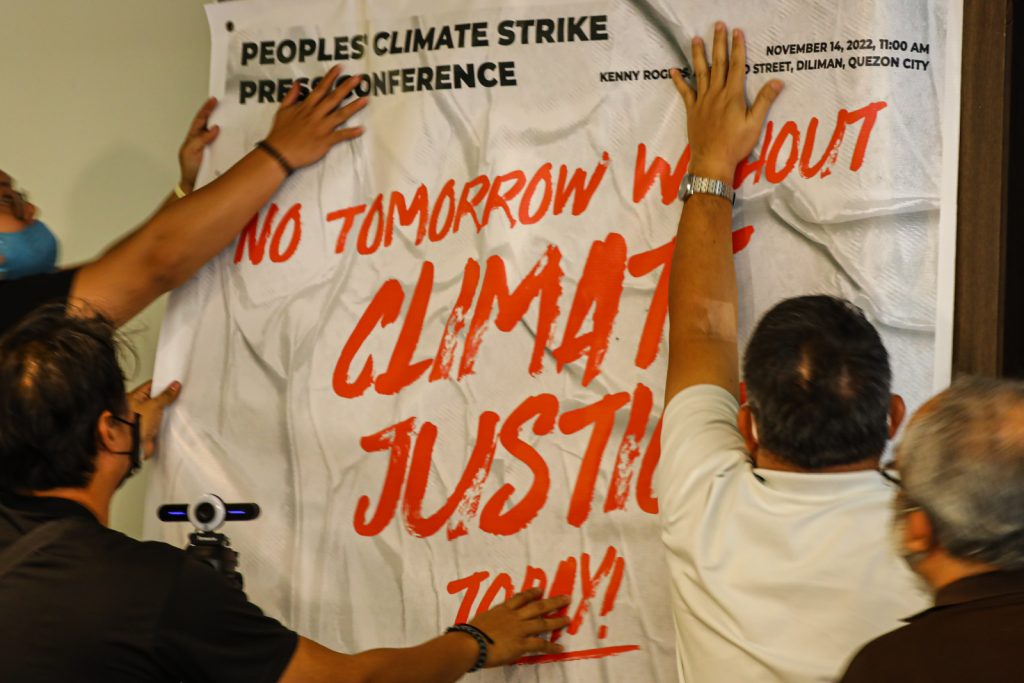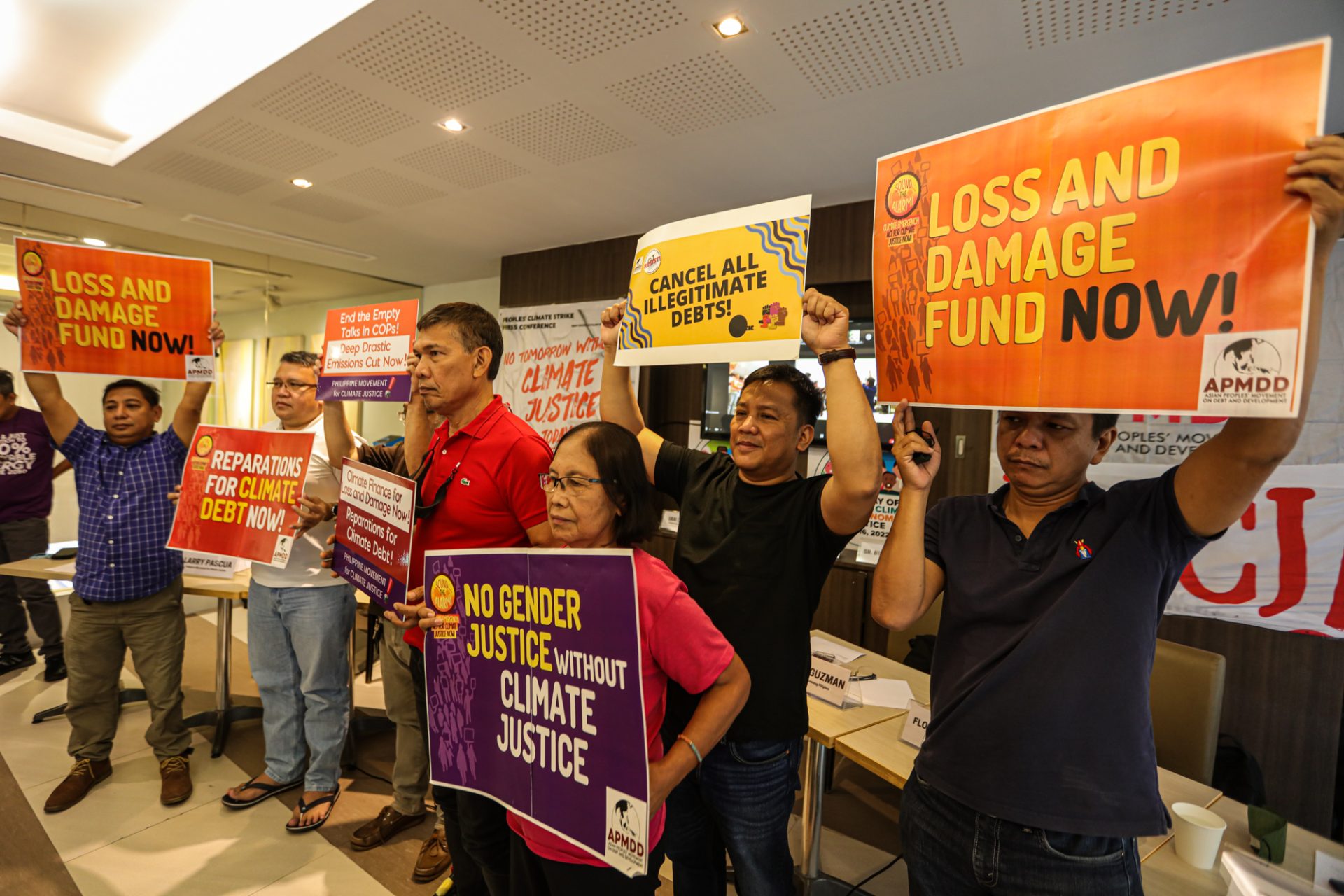Civil society and people’s movements across Asia called on governments of rich countries to deliver solutions to the “climate and economic crises gripping the world” as the COP 27 climate summit in Egypt entered its final week and the G20 summit opened in Indonesia.
“The majority of peoples and communities in Asia bear the brunt of the worsening climate crisis,” said Lidy Nacpil, coordinator of the Asian Peoples’ Movement on Debt and Development (APMDD).
“We demand from COP 27 and the G20 summit the delivery of adequate, grants-based, and accessible climate finance, the establishment of a loss and damage fund, as well as reparations for the climate debt owed by rich countries to the Global South,” said Nacpil in a statement.
Nacpil said governments of rich countries “continue to lag on their obligations to address climate issues even as they pledged to jointly mobilize US$100 billion annually in climate finance to fund climate action in developing countries.
“This is a ridiculously low amount considering the scale of need. But they failed to even meet this very amount,” said Nacpil.
Leaders of the G20 nations – the world’s major economies – meet in Bali, Indonesia, this week for their annual summit.
The Group of 20 – made up of 19 countries plus the European Union – accounts for nearly two-thirds of the global population, 85 percent of the world’s economic output and 75 percent of world trade.
According to the 2022 Adaptation Gap Report, which was released ahead of the COP27, annual adaptation needs are between US$160 billion to US$340 billion by the end of the decade, and up to US$565 billion by 2050.
The report called for increased funding and implementation of actions aimed at helping vulnerable nations and communities adapt to the climate emergency in the face of mounting risks.
Nacpil said rich countries are spending several times more on subsidies for fossil fuels while providing climate finance through debt-creating instruments.

“Climate finance should be provided as grants based on climate debt, not another opportunity for rich countries and corporations to profit from poor and vulnerable countries,” she said.
Lawyer Aaron Pedrosa of Sanlakas said world leaders assembled at COP 27 and the G20 summit must deliver a commitment to rapid, just, and equitable transition to 100 percent democratic and renewable energy systems and low-carbon development.
“We need real solutions to climate change and the multiple crises we are facing. The time is now to address the root cause of the problem, instead of pushing for false solutions that extend the life of fossil fuels,” Pedrosa said during a media briefing in Quezon City on Monday.
“We demand the total rejection of false solutions, such as carbon capture and storage, oil and gas as transition fuels, and carbon trading under net zero schemes,” he added.
Ian Rivera, national coordinator of the Philippine Movement for Climate Justice called on the governments of rich countries, multilateral banks, and corporations to immediately stop funding and supporting fossil fuel projects.
“We really have to end fossil fuels now. There must be no more new oil, gas or coal if we are to save humanity. Shift those financing to clean energy,” he said.
Rene Ofreneo, president of the Freedom from Debt Coalition, said that as countries in the Global South are already facing crippling debt service, “sudden and slow onset impacts of climate change not only limit the abilities of these countries to repay their loans, but also their abilities to respond to the needs of the most vulnerable during extreme climate events and increasing losses and damages.”
He demanded that debts be cancelled “to help developing countries respond to the climate crisis.”







